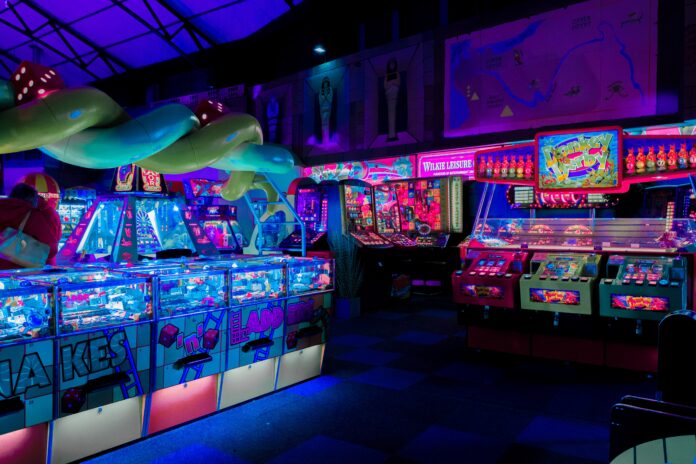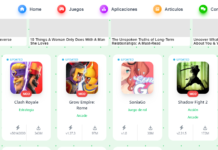Non-fungible tokens (NFTs) have been storming the video game industry. This type of digital asset has the potential to revolutionize how video games are created, played, and sold. With NFTs, developers can create unique in-game items that players can trade or use as currency.
In this guide, you will learn how NFTs work and how they change the landscape of video game development and monetization. Read on to discover more about the emerging world of NFT game development and how it is disrupting the industry.
What is NFT Game Development?
NFT game development is a new and innovative concept within the video game industry. NFTs are digital assets stored on the blockchain representing ownership or access to in-game items such as virtual land, digital art, collectibles, and other rare in-game assets. Each NFT item is unique and cannot be replicated or exchanged for another asset of equal value.
This technology has revolutionized the way games are created and played. Developers now have access to an entirely new set of tools to create experiences that allow players to own their virtual assets for life. An NFT game development company creates in-game items with NFTs, providing gamers with the opportunity to own and trade them as they wish.
The Benefits of NFTs in Video Games
There are various benefits of using Non-Fungible Tokens (NFTs) in video games, especially compared to traditional game items.
First and foremost, NFTs are more secure than regular digital assets due to the use of blockchain technology. This ensures that players’ assets remain safe from hacking or theft attempts, as each item is stored on an immutable ledger with a unique identifier assigned to it. This also helps reduce the risk of fraud as every transaction is tracked and recorded on the blockchain, making it nearly impossible for someone to modify or duplicate them without leaving a trace.
Another significant benefit of using NFTs in video games is that they enable true ownership over virtual items. Players have full control over their NFTs and can trade, sell and gift them as they please. This allows for a vibrant in-game economy to develop where players can monetize their assets and generate real-world value from playing the game.
Finally, NFTs also make it easier for developers to create unique gaming experiences that are more attractive to players. They allow developers to create limited edition items with scarcity attached to them which can be used as rewards or incentives in the game. This helps bring more life and excitement into the video game world as players strive to obtain these rare items that no one else can access.
The Challenges that NFTs Present in the Video Game Industry
1. Cost of Development: Developing and deploying an NFT game can be a costly endeavor. This is because the technology is still relatively new, and few developers specialize in NFTs. Furthermore, creating digital assets with blockchain-secured ownership also requires significant resources to ensure data security and utilize servers to process transactions and store information. You can also take help from a metaverse game development company for NFT game development.
2. Scalability: As an emerging technology, game development with NFTs has yet to reach the level of scalability that many game developers desire. The limited availability of developers with the necessary skill set to work on these projects makes it difficult for some organizations to scale up quickly enough.
3. Regulatory Issues: Given the decentralized nature of NFT games, there are yet to be established rules and regulations in many countries concerning the ownership of digital assets. This lack of regulation helps make it difficult for developers to ensure that their games adhere to local laws and could lead to potential legal challenges.
4. Security: With any new technology, there is always a risk of security breaches or malicious actors taking advantage of loopholes in the system. NFTs present an even greater challenge due to their decentralized nature and how much data is stored on them. As such, game developers must do everything they can to ensure that all transactions are secure and protected from external threats.
Examples of Popular NFT-Based Video Games
The potential of NFTs to revolutionize the gaming industry is already evident in some of the most popular titles available today. Here are a few examples:
- CryptoKitties: CryptoKitties is one of the oldest and most beloved blockchain-based games available. This game features digital cats that can be collected, bred, and sold for cryptocurrency. CryptoKitties allows players to purchase, breed, collect, and trade their kitties with each other using Ethereum’s smart contracts.
- Gods Unchained: Gods Unchained is a trading card game that allows gamers to purchase, collect, trade, and battle digital cards. Each card is an NFT stored on the Ethereum blockchain that can be bought, sold, or traded in exchange for cryptocurrency.
- Decentraland: Decentraland is a virtual world created on top of the Ethereum blockchain. It’s an open-source platform where users can create and monetize content using non-fungible tokens (NFTs). Users are able to purchase land parcels called “Lands,” which they then customize and build upon.
The Bottom Line
NFT game development is revolutionizing the video gaming industry, and in many ways, it is just getting started. With NFTs being used to create unique digital assets with real-world value, developers can create new levels of player experience that have never been seen before.
Developers can use these digital assets to reward players for their time, effort, and achievements in a much more meaningful way than ever before. This also allows players to own their own pieces of virtual worlds, giving them a personal stake in their games and making them feel more connected to their gaming experiences.





















